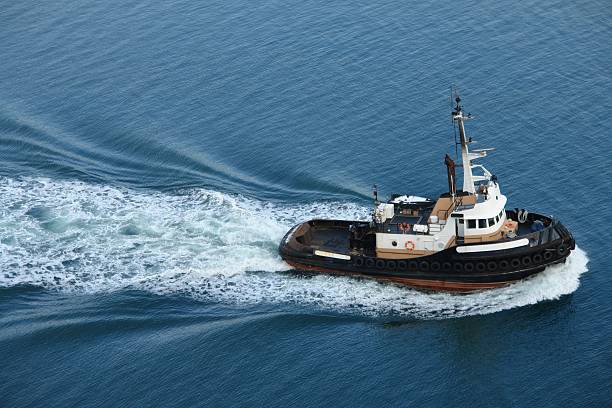
Tug boats, also known as tow boats or push boats, are powerful vessels designed to move other vessels or structures along waterways. Although they may not be as glamorous as cruise ships or yachts, tug boats play a critical role in the maritime industry, helping to transport goods and people safely and efficiently.
In this article, we'll explore the history and evolution of tug boats, the different types of tug boats, and the important roles they play in various industries.
A Brief History of Tug Boats
The history of tug boats dates back to the early 19th century when steam-powered boats began to replace traditional sailing vessels. The first steam-powered tug boat, named Charlotte Dundas, was built in Scotland in 1801. It was used to tow barges along the Forth and Clyde Canal in Scotland.
Since then, tug boats have evolved significantly, with advancements in technology making them more powerful, efficient, and versatile. Today, tug boats are used for a wide range of tasks, including towing, pushing, firefighting, ice breaking, and salvage operations.
Types of Tug Boats
Tug boats come in a variety of shapes and sizes, each designed for specific tasks. Here are some of the most common types of tug boats:
Roles of Tug Boats
Tug boats play a vital role in a range of industries, including shipping, oil and gas, construction, and firefighting. Here are some of the important roles they play:
Conclusion
Tug boats may not be as flashy as other types of vessels, but they play a critical role in the maritime industry. From towing massive container ships to fighting fires on oil platforms, tug boats are the unsung heroes of the waterways. With their powerful engines and specialized equipment, these vessels ensure that goods and people are transported safely and efficiently around the world.
In addition, tug boats are also environmentally friendly as they help to reduce the carbon footprint of shipping. By using tug boats to move large vessels, shipping companies can avoid running their engines for extended periods, thereby reducing emissions and saving fuel costs.
Tug boats also provide an essential service to communities that rely on water transportation. They help to ensure that goods and resources can be transported to remote areas and island communities, which might otherwise be inaccessible.
In recent years, there have been several technological advancements in the design of tug boats, making them even more efficient and versatile. For example, some modern tug boats are equipped with hybrid engines, which use both diesel and electric power to reduce emissions and increase fuel efficiency.
Furthermore, some tug boats now incorporate advanced monitoring and control systems, which enable crews to manage the vessel's engine, propulsion, and towing equipment remotely. This technology helps to improve safety and efficiency while reducing crew fatigue and workload.
In conclusion, tug boats may not be the most glamorous vessels on the waterways, but they are undoubtedly some of the most important. These unsung heroes of the maritime industry play a critical role in ensuring the safe and efficient movement of goods and people around the world. With advancements in technology and a growing focus on sustainability, the future of tug boats looks bright, and we can expect them to continue to play an essential role in the water transportation industry for years to come.
Dredgers are important machines used for excavation and land reclamation in water bodies. They come in different shapes, sizes, and types, depending on the specific purpose they are designed for. I....
Pilot boats play a vital role in ensuring the safety and efficiency of maritime transportation. These boats are designed to transport pilots to and from ships that require their expertise in navig....
Self-propelled barges are vessels that are designed to transport large quantities of cargo on inland waterways. These barges are propelled by their own engines, making them highly efficient and cos....
Barge/ Dumb Barge A barge is a flat-bottomed boat that is designed to transport goods or people on inland waterways or near-shore locations. Dumb barges, also known as unpowered barges, are t....